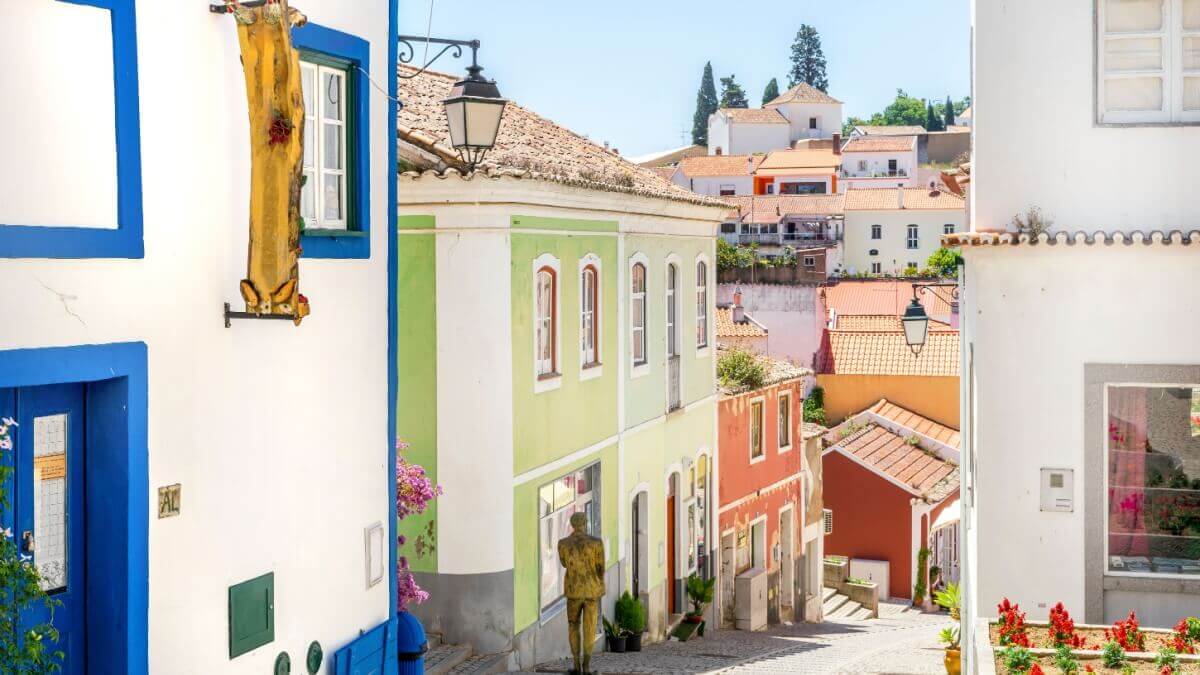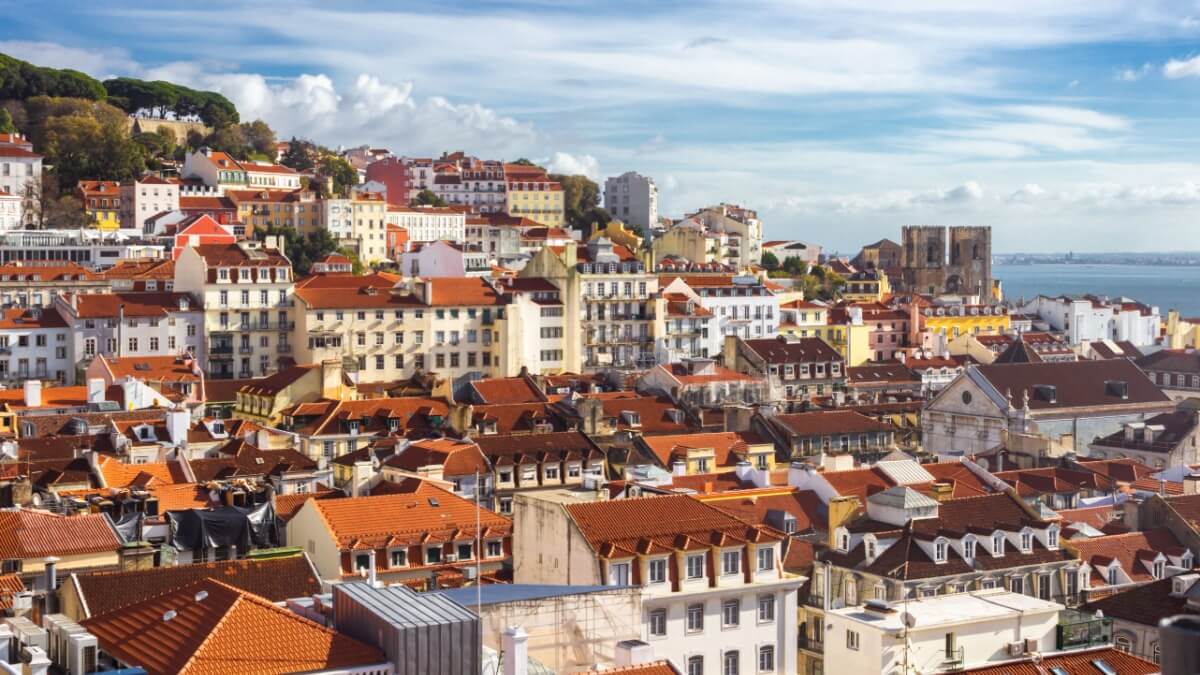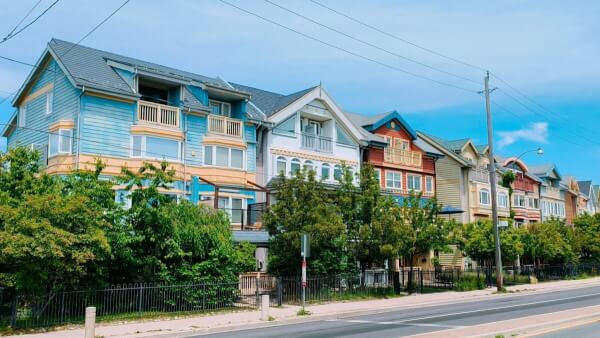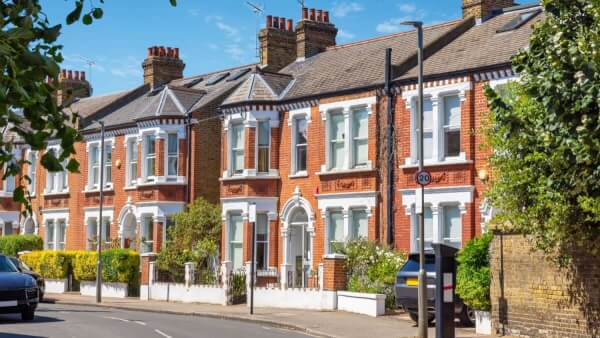Buying property in Canada as a foreigner
Read our comprehensive UK guide to buying property in Canada as a foreigner, including average prices, fees, taxes and where to start house hunting.

Thinking of selling a property in Portugal? Perhaps it’s an investment property or a holiday home you don’t use very much. It might even be your current home, and you’re selling up in order to move back to the UK.
Whatever your plans, this guide is for you. We’ve put together all the essential info you need on selling property in Portugal as a UK resident. This includes the steps to sell a property there, along with fees, taxes, timescales and whether or not you need a solicitor.
And if you need a low-cost, transparent way to transfer the proceeds of your property sale back to the UK, check out the Wise account from the money services provider Wise. It’s an international alternative to a bank account that lets you manage your money in 40+ currencies including British pounds and euros.
You can send, receive and convert money at great mid-market exchange rates and low, transparent fees*. Your money is always safeguarded and you’ll also get dedicated support when sending large amount transfers.
Learn more about the Wise account 💰
If it’s your first time selling a property in Portugal, you’ll need to get to grips with how the process works. You’ll have some understanding of it from your experience buying Portuguese property, but it can be a little different from a seller’s perspective.
Let’s run through the main steps, so you know exactly what to expect.
Before you do anything else, you need to make sure you have the required paperwork to sell your property. Here’s what you should have ready:¹
The next step is to find an estate agent to market and sell the property. It isn’t mandatory to use one, but it is advisable - especially if you’re selling a Portuguese holiday home while still living in the UK, or if you’re unfamiliar with the local property market.
An agent will have the local knowledge and expertise to sell your property at a good price. They’ll also take care of viewings, photographs of the property, paperwork and communications with potential buyers. Crucially, they’ll also give you a valuation, which will help you set the purchase price.
To choose an estate agent, it’s a good idea to look for English-speaking agents with experience of working with UK sellers and expats. Ideally, get a personal recommendation from someone you know who has successfully sold a Portuguese property.
Otherwise, you should look for a licensed, accredited agent who is registered with INCI (Instituto dos Mercados Públicos, do Imobiliário e da Construção). Some may also be part of an association of Portuguese estate agencies such as AMI or AMEDI.
Now it’s time to put your property on the market and advertise it to potential buyers. You should look to spruce the place up, decluttering, cleaning windows and dressing each room carefully. Then, either you or your estate agent will need to take some photos to show off its best features.
Your estate agent will play a central role in advertising the property, but you can also list it on popular local property sites such as:
It’s recommended to hire a solicitor to give you advice on your Portuguese property sale, and to oversee the legal and administrative aspects of the sale.
A personal recommendation is a good way to find a solicitor, but you can also find a list of English-speaking property solicitors on the UK Government website.
Buyers can submit offers directly to you, but it could be easier if they go through your real estate agent. They can help you negotiate with buyers and agree on a final purchase price.
Once the buyer’s solicitor has completed all the necessary due diligence checks, it’s time to sign the preliminary contract. This is known as the CPCV (Contrato de Promessa de Compra e Venda).
The contract will be prepared by the buyer’s solicitor, and is legally binding. Once your solicitor has checked it and you’re happy, both parties will sign.
The buyer will also pay you a deposit (usually around 10%) and a completion date will be agreed.
As the transaction reaches completion, it’s time to sign the final deed. This is known as the Escritura Publica de Compra e Venda and is the Deed of Purchase and Sale.
This will involve signatures from both parties in the presence of a notary. Both parties’ solicitors will also be present. The buyer will pay the remaining balance, you’ll hand over the keys and the property will be registered in the new buyer’s name.
| 💡 Read more: Receiving money from abroad in the UK: a how-to guide |
|---|
Your circumstances will have a lot to do with whether or not it’s the right time to sell your property in Portugal. For example, how much you originally paid for the property along with how much prices have risen (or fallen) in the region.
But more generally across the country, it could be a good time to sell. The real estate market in Portugal is looking pretty healthy, and house prices have been gradually increasing for the last decade. In 2023 alone, property prices grew by 6.5% and a similar or even higher growth figure is predicted for 2024.²
So if you bought at the right price, now could be an advantageous time to sell up.

On average, properties in Portugal tend to sell within a few months.³
But, the time it takes to sell a property can vary based on a few factors, some of which will be out of your control. For example, the buyer may take longer than expected carrying out due diligence checks, or there may be an extra legal or other complication which takes time to resolve.
It may also depend on the asking price and how fast properties are selling in the local market.
It’s strongly recommended to appoint a solicitor specialising in real estate or conveyancing work in Portugal. They can draw up and translate documents, check over conditions of contracts, give you advice about the selling process and so much more.
This could make your property sale go more smoothly and crucially, help you avoid a costly mistake.
It’s not strictly necessary to have a Portuguese bank account to sell property in the country. You may be able to use an international account or even your current account with a UK bank.
Another thing to note is that international transfers could get expensive, especially if the provider adds a margin to the exchange rate to convert your euros to British pounds. Consider checking out Wise to handle your international large transfers with mid-market exchange rates and low, transparent fees*.
Now we come to the crucial question - how much will it cost you to sell property in Portugal? Let’s take a quick look at the main fees and taxes involved:⁴
| Tax/fee name | Rate/fee |
|---|---|
| Real estate agent fees | 3-10% of sale price |
| Capital gains tax | 28% (on profit from the sale) |
| Legal fees | Around 1% |
| Notary fees | Approx. €500 to €1,500 EUR |
Estate agent fees in Portugal vary depending on the area, and they’re also negotiable - so may vary between agents. But generally, you can expect to pay anywhere between 3% to 10% of the total sale price.⁴
When you sell a property in Portugal, you’ll need to pay capital gains tax on any profit you make from it. So, the difference between what you paid for the property and what you sell it for, minus any fees and expenses.
For non-residents of Portugal, the rate is set at 28%. Remember - this is only payable on the profit, not the total amount you sell the property for.⁴
If you will be reinvesting your money in a new property in Portugal or the EU, you may be exempt from the tax. Exemptions are also available for retirees.⁴
Complicating things further is the fact that the UK also has rules on capital gains tax when you sell property abroad.
If you’re a UK resident and sell a Portuguese holiday home, for example, you’ll need to pay the tax in the UK. However, you can potentially claim relief if you’re taxed twice, in both countries.⁵
Tax can be complex, so it’s best to get advice from a tax specialist before proceeding. An expert can also advise on inheritance tax rules, if this is relevant to your situation.
If you appoint a solicitor in Portugal, you can expect their fee to be around 1% of the overall sale price.⁴
Lastly, there are fees for the notary’s work, which includes registration fees for the legal transfer of property. All together, these tend to cost between €500 and €1,500 EUR.⁴
For anyone considering moving to Portugal (or staying there if you’re a temporary resident), it’s useful to know about tax residency and how it relates to property ownership.
Owning a property doesn’t automatically make you a tax resident in Portugal. But how much time you spend living in the property does.
Portugal has something called the 183-day rule to determine tax residency status. You’re considered a tax resident for the year if you spend 183 days or more in Portugal within that year, or if you’re a permanent resident in your Portuguese home.⁶
Once the deal is done, you might need to work out the best way to transfer the proceeds from your Portuguese property sale back home to the UK if you don’t live in Portugal.
Here’s where Wise can help you save money and avoid those pesky hidden fees and exchange rate markups. Open a Wise account online and you can send money between Portugal and the UK for low, transparent fees* and great mid-market exchange rates.
Here’s an overview of the main benefits for using Wise: |
|---|
|
Sources used:
Sources last checked on date: 13-Nov-2024
*Please see terms of use and product availability for your region or visit Wise fees and pricing for the most up to date pricing and fee information.
This publication is provided for general information purposes and does not constitute legal, tax or other professional advice from Wise Payments Limited or its subsidiaries and its affiliates, and it is not intended as a substitute for obtaining advice from a financial advisor or any other professional.
We make no representations, warranties or guarantees, whether expressed or implied, that the content in the publication is accurate, complete or up to date.

Read our comprehensive UK guide to buying property in Canada as a foreigner, including average prices, fees, taxes and where to start house hunting.

Read our comprehensive UK guide to buying property in Indonesia as a foreigner, including average prices, fees, taxes and where to start house hunting.

Read our comprehensive guide for non-residents selling UK property, including fees, taxes and timescales.

Read our comprehensive guide to selling property in the US, including fees, taxes, timescales and a step-by-step guide to the process.

Read our comprehensive guide to selling property in Switzerland, including fees, taxes, timescales and a step-by-step guide to the process.

Read our comprehensive guide to selling property in Malta, including fees, taxes, timescales and a step-by-step guide to the process.